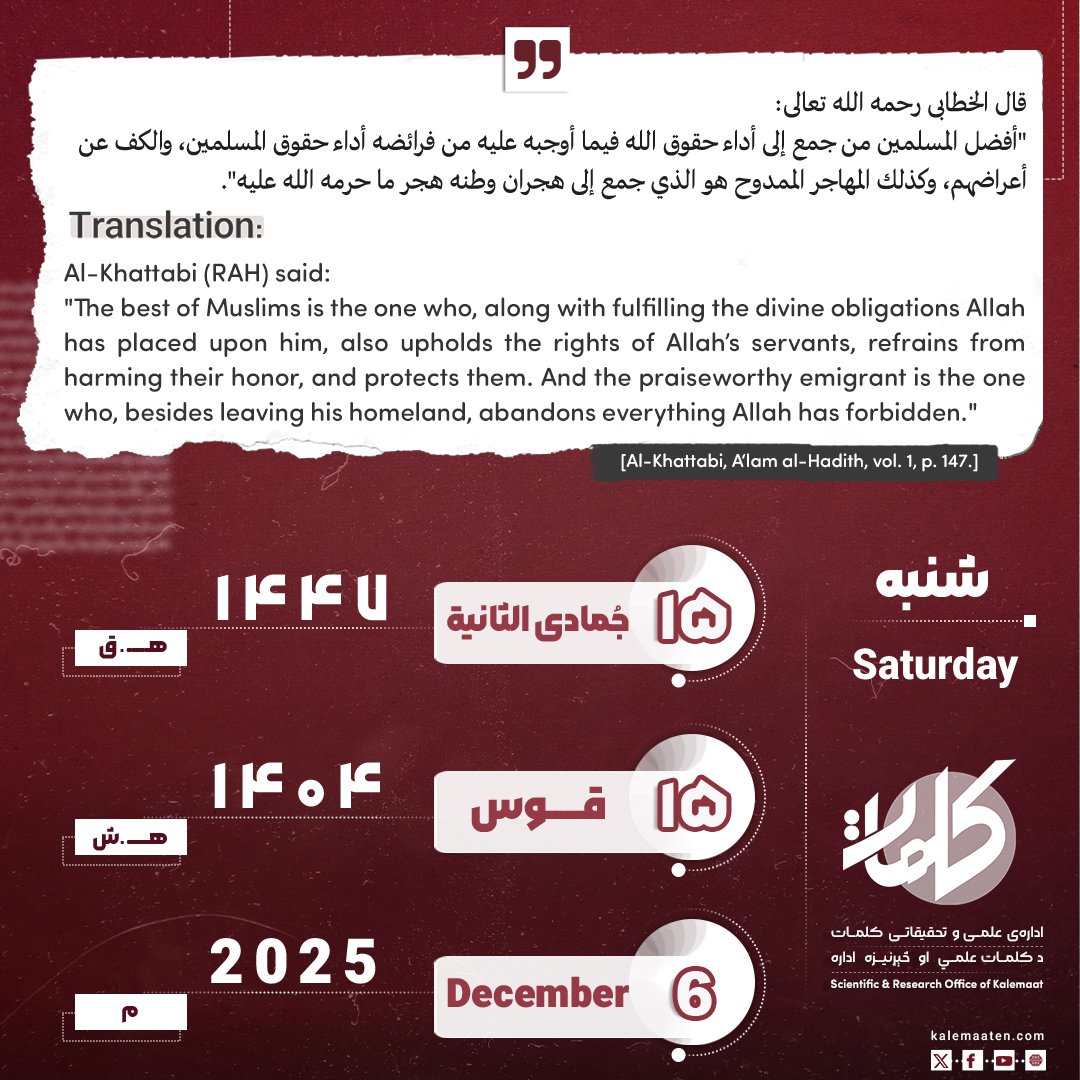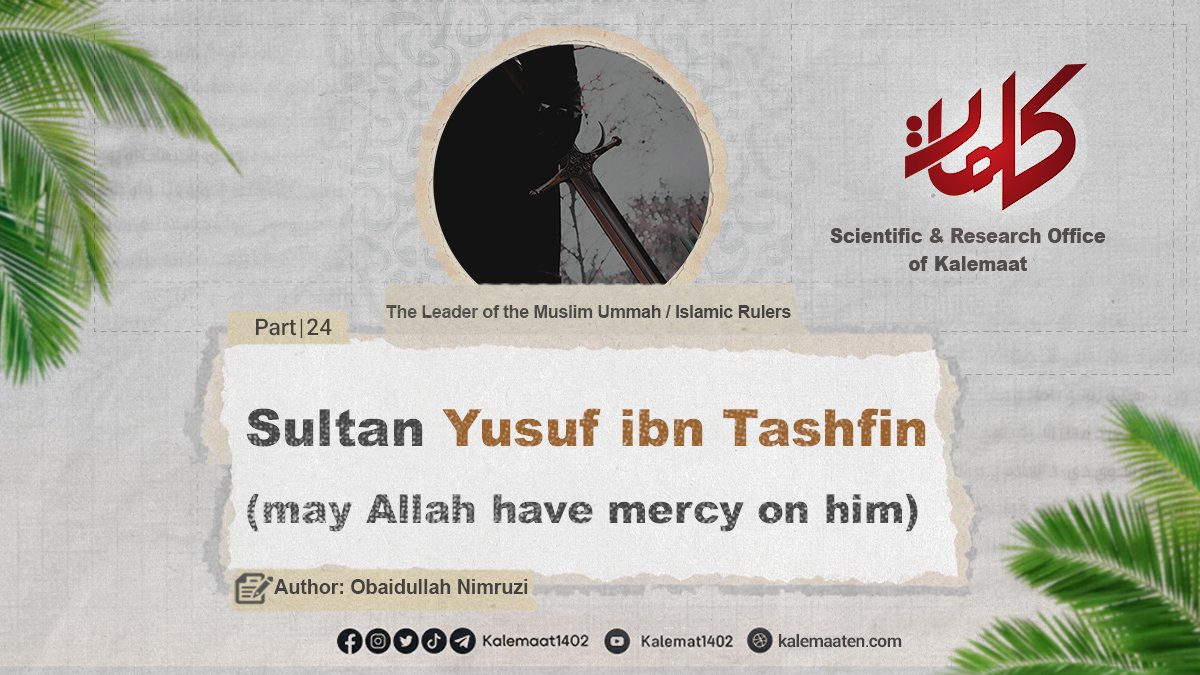Author: Obaidullah Nimruzi
The Guardian of Al-Andalus (Spain): Sultan Yusuf ibn Tashfin [MABH] (Part 24)
The Great Jihad for the Unity of the Maghrib
When Yusuf ibn Tashfin had formed his organized army, appointed its commanders, drawn up military plans, and defined clear objectives, these faithful soldiers set out toward their goals. These objectives were to fight against the tribes that had rebelled against the Murabitun state and had deviated from the rulings of Islamic Sharia. The most notable among these tribes were the Maghrawa and the Banu Ifran. [1]
A Commander on the Battlefield: Yusuf ibn Tashfin at the Front Lines
Yusuf ibn Tashfin himself took command of another division of the army and followed after the vanguard, with the aim of spreading Islam, attending to the people’s conditions and lands, abolishing unjust taxation and fabricated laws, and leaving only zakat, ‘ushr (a type of agricultural tithe), and similar levies that conformed to Islamic law. Along this path, Yusuf called people to unity, congregational prayer, alignment of ranks, establishment of religion, and joining the caravan of jihad.
The Reaction of the People of the Maghrib: Three Different Groups
The people of the Maghrib reacted to Yusuf ibn Tashfin’s call in three ways:
A group obeyed willingly and joined the ranks of the mujahidin.
A second group opposed and showed hostility. The Murabitun would call them back to unity and to abandon division. If they refused, they were besieged, and if that was ineffective, jihad was declared against them until they repented and submitted to the laws of Sharia.
A third group neither fought nor joined the Murabitun but simply withdrew.[2]
Conquest, Region by Region: The Expansion of the Murabitun State
Thus, Yusuf ibn Tashfin took up the banner of jihad and advanced until he reached all parts of the Maghrib. He expanded the territory of the state, brought the tribes under obedience one by one, and conquered the cities, one after another. [3]
Military Reform in a New Phase
Drawing upon his experience in jihad and his strong military instinct, Yusuf came to the conclusion that the army needed reorganization. He formed new divisions and appointed competent commanders over them. This decision was made in light of the new phase that the state had entered—a phase in which it had moved from nomadic life and desert dependency to a stable condition with a strong capital, fortresses, military installations, battle-ready forces, weapons, and supplies.
Historical reports mention that the number of Murabitun forces had reached about one hundred thousand horsemen from various tribes who had gathered under the Murabitun banner and embraced its principles. However, the exact date for this figure is disputed. For instance, Ibn Abi Zar‘ mentions the year 454 AH.
The Power of Faith: The Secret Behind the Unprecedented Growth of the Murabitun Army
Although reports vary regarding the army’s exact numbers, there is no denying the remarkable growth of the Murabitun military at that time. The reason for this was the expansion of the Murabitun’s call, the people’s awareness of its lofty aims, the rise in Islamic jihadi spirit, and the widespread desire to join the ranks of the mujahidin. How could the Murabitun’s movement not grow when its leaders were loyal to it even to the point of martyrdom?
The founder of this movement, Abdullah ibn Yasin, was martyred in the year 451 AH. After him, Emir Yahya ibn ‘Umar was also killed around 448 AH, and Abu Bakr ibn ‘Umar gave his life for this cause in 480 AH. Yusuf ibn Tashfin followed in their footsteps—he was present on the front lines in every battle and was always ready for martyrdom. He had no attachment to worldly pleasures; he ate barley bread and wore rough clothing!
Beloved of Hearts: Why Did the People of the Maghrib Rally Around Yusuf?
Given all this, is it surprising that the people of the Maghrib gathered around Yusuf ibn Tashfin with love and eagerness? If his army consisted of one hundred thousand armed warriors, it is no cause for astonishment—because the Murabitun believed that jihad, especially in the face of enemy aggression, was an obligation upon every Muslim. Thus, all the forces of the Murabitun were always ready for jihad.
Continues…
Previous Part/ Next Part
References:
[1] Ibn Abi Zar‘, Rawd al-Qirtas, p. 89.
[2] Ibn Abi Zar‘, Rawd al-Qirtas fi Akhbar Muluk al-Maghrib wa Tarikh Madinat Fas, ed. Bashar Awwad Ma‘ruf, Dar al-Gharb al-Islami, Beirut, 1997, p. 89. Also: Yusuf Ashbach, Tarikh al-Andalus fi ‘Ahd al-Murabitin wa al-Muwahhidin, trans. Dr. Ihsan ‘Abbas, Dar al-Thaqafah, Beirut, 1983, p. 479.
[3] Ibn Abi Zar‘, Rawd al-Qirtas, p. 89; Yusuf Ashbach, Tarikh al-Andalus fi ‘Ahd al-Murabitin wa al-Muwahhidin, p. 479.



